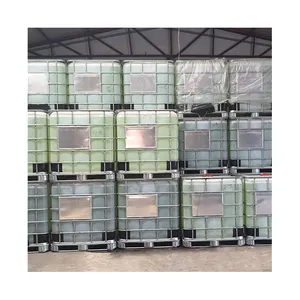

White Bottle 75ml Small HDPE Alcohol Spray Bottle Square White Plastic With Crown Cap And Screen Printing For Personal Care Use






















Isopropyl alcohol, commonly known as IPA or isopropanol, is a versatile solvent known for its effectiveness in cleaning and disinfecting applications. This chemical compound, with the formula C3H8O, is used across various industries due to its antiseptic properties and ability to dissolve a wide range of non-polar compounds.
The isopropyl alcohol market offers a variety of products, each with distinct characteristics catering to different needs. From 99% isopropyl alcohol, which is used for its high purity and effectiveness in technical applications, to 70% IPA, preferred in medical settings for its balance of efficacy and reduced toxicity. Specialized formulations like isopropyl alcohol 2 propanol and isopropyl alcohol and isopropanol are tailored for specific industrial processes, providing options for businesses seeking solvents for complex chemical reactions or cleaning tasks.
Physically, isopropyl alcohol is a clear, colorless liquid. It is packaged and delivered in various container types, from small bottles for laboratory use to large drums for industrial applications. The operation of using isopropyl alcohol involves its application to the desired surface or as a component in a solution, where it acts by breaking down oils, greases, and other organic materials, making it an effective cleaner and disinfectant.
The materials used in the production of isopropyl alcohol include water and propene, which undergo a hydration process to create the alcohol. The choice of materials like non-woven fabric for wipes or 100% cotton for medical swabs is driven by their ability to absorb and apply the alcohol effectively. These materials are selected for their durability, softness, and eco-friendly properties, which are crucial in medical and cleaning applications.
Isopropyl alcohol is indispensable in businesses ranging from electronics, where it cleans delicate components without leaving residue, to pharmaceuticals, where it sterilizes equipment. In the automotive industry, it is used to prepare surfaces for painting. Its role in creating business value is evident in its ability to ensure the cleanliness and functionality of products and environments, thereby maintaining health standards and operational efficiency.
Designed to serve as a solvent and disinfectant, isopropyl alcohol functions by dissolving lipids and denaturing proteins, making it lethal to bacteria and viruses. It is also used to dehydrate biological specimens in laboratories, showcasing its versatility in both cleaning and preserving.
The distinct characteristics of isopropyl alcohol include its rapid evaporation rate and low toxicity, making it a safer choice for users. Its lack of color and strong odor are unique selling points that set it apart from other solvents, which may leave residues or have pungent smells.
Using isopropyl alcohol solves problems related to contamination and infection control. It meets the need for a quick-drying, non-corrosive, and relatively non-toxic solution for cleaning and disinfection. The positive outcomes include a reduction in microbial load on surfaces, contributing to a safer and cleaner environment.
To use isopropyl alcohol effectively, apply it to a clean cloth or use pre-saturated wipes for surface disinfection. For electronics, use a small amount on a swab or lint-free cloth to avoid excess liquid that could cause damage. When used as an antiseptic, it should be applied directly to the skin in a well-ventilated area.
Selecting the right isopropyl alcohol product depends on the intended use. For medical applications, a 70% concentration is often recommended, while for technical cleaning, a higher concentration like 99% may be more appropriate. Consider the grade, certification, and material compatibility when choosing a product.
Cleaning with isopropyl alcohol involves applying it to the surface and allowing it to sit for at least 30 seconds to disinfect. It should then be wiped away with a clean cloth, ensuring that the surface is left dry and free from contaminants.
Maintaining the quality of isopropyl alcohol involves storing it in a cool, dry place away from direct sunlight and heat sources. Containers should be kept tightly closed to prevent contamination and evaporation. Proper labeling and adherence to safety guidelines are essential for safe storage.
Installing isopropyl alcohol dispensers should be done in accessible locations, ensuring that they are securely mounted and easy to use. For large containers, use a pump to dispense the liquid to prevent spills and ensure controlled usage.
The target audience for isopropyl alcohol includes medical professionals, laboratory technicians, and cleaning staff, among others. The product meets their needs by providing a reliable solution for sterilization, cleaning, and maintenance tasks, ensuring safety and efficiency in their respective fields.
Isopropyl alcohol stands out among solvents for its balance of efficacy and safety. It evaporates quickly, leaves no residue, and is relatively non-toxic, making it superior for cleaning electronics and optical equipment. Compared to other alcohols, its lower water content reduces the risk of corrosion, an essential factor for industrial use.
Proper storage of isopropyl alcohol is crucial to maintain its purity and effectiveness. It should be kept in a cool, well-ventilated area away from heat sources and open flames due to its flammability. Containers should be sealed tightly to prevent contamination and evaporation. Handling should always be done with appropriate safety gear such as gloves and goggles.
Yes, isopropyl alcohol is widely used for sterilizing medical equipment due to its antimicrobial properties. It is effective against bacteria, viruses, and fungi. However, it must be used in proper concentrations and with adherence to medical standards to ensure thorough sterilization and avoid damage to sensitive equipment.